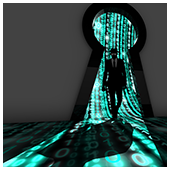The New Year is upon us, and with it comes a new batch of cyber threats. As advances are made in the world of technology, businesses anticipate changes that can make life more convenient. But, like snakes slithering into your home, cyber attackers also keep up with technological changes for their own nefarious ends. Knowing […]
 The New Year is upon us, and with it comes a new batch of cyber threats. As advances are made in the world of technology, businesses anticipate changes that can make life more convenient. But, like snakes slithering into your home, cyber attackers also keep up with technological changes for their own nefarious ends. Knowing what you are up against is the first step to fighting these threats.
The New Year is upon us, and with it comes a new batch of cyber threats. As advances are made in the world of technology, businesses anticipate changes that can make life more convenient. But, like snakes slithering into your home, cyber attackers also keep up with technological changes for their own nefarious ends. Knowing what you are up against is the first step to fighting these threats.
Increased threats on cloud technology
Cloud service has numerous benefits to businesses. They make data storage, collaboration, and processing more efficient; they enable employees to work faster; and they help operations flow smoother. Cloud technology’s popularity is expected to rise well into the next few years, but as demand increases, so does the dangers presented by cyber attackers.Ransomware will be more complex
Ransomware incapacitates computer systems by locking down files and preventing access for ransom. In its 2016 Threat Predictions report, security software company McAfee predicts a peak in ransomware attacks next year. Although they also predict it to recede by mid-year, damages to vulnerable cloud-dependent infrastructures can be great and costly. Most alarming in the prediction, however, is that in the coming year ransomware attacks will be more complex due to new elements.Ransomworms, which use advanced victimization techniques to mine further data within an already compromised network, are expected to put an even crueler spin to an already formidable malware. Doxing, on the other hand, affects avenues such as social media and any place where sensitive, easily identifiable information can be extracted to serve the ultimate purpose of extorting money. Yet another wicked ransomware to watch out for is Backup Deletion, which destroys the very mechanism that can otherwise help you recover from a compromised system or files: your backup data.
More threats to IoT (Internet of Things)-enabled devices
It is also predicted that 2017 will see attacks made on IoT-powered devices, which will make life harder for those who depend on technology that makes life easier. It targets medical devices and Electronic Medical Records, “connected cars”, basic domestic tools, and tech-driven wearables, such as smartwatches and fitness trackers. The danger posed by this intrusion is fully capable of corrupting information stored in your devices.Advanced cyber espionage
Cyber espionage is by no means a novelty. In 2017, it’s expected to hold sway in cyber-threat prevention measures as it becomes even more complex. It encompasses all sectors of society, including individuals, private organizations, government institutions, and entire countries. Perpetrators will have the means to bypass networks by attacking firewalls and wreak havoc in their victims’ network. Fret not, for there will be measures in place to detect this threat also in the coming year.Hackers are one of the most cunning criminals to have ever existed. While the cyber-police and the defenses they put up are no slouches, threats to security systems can still make technology-dependent individuals and businesses quiver. Although damaged networks can be repaired, compromised privacy restored, and stolen data returned, the amount of damage that hackers can cause might be irreparable and/or result in a significant dent in your IT infrastructure and budget. The value of a network security system makes itself known when you least expect it, which is why security should be a top priority.
Are your systems protected from these predicted remarkable feats of hacking? Call us if you want to discuss security services that are best for you.
